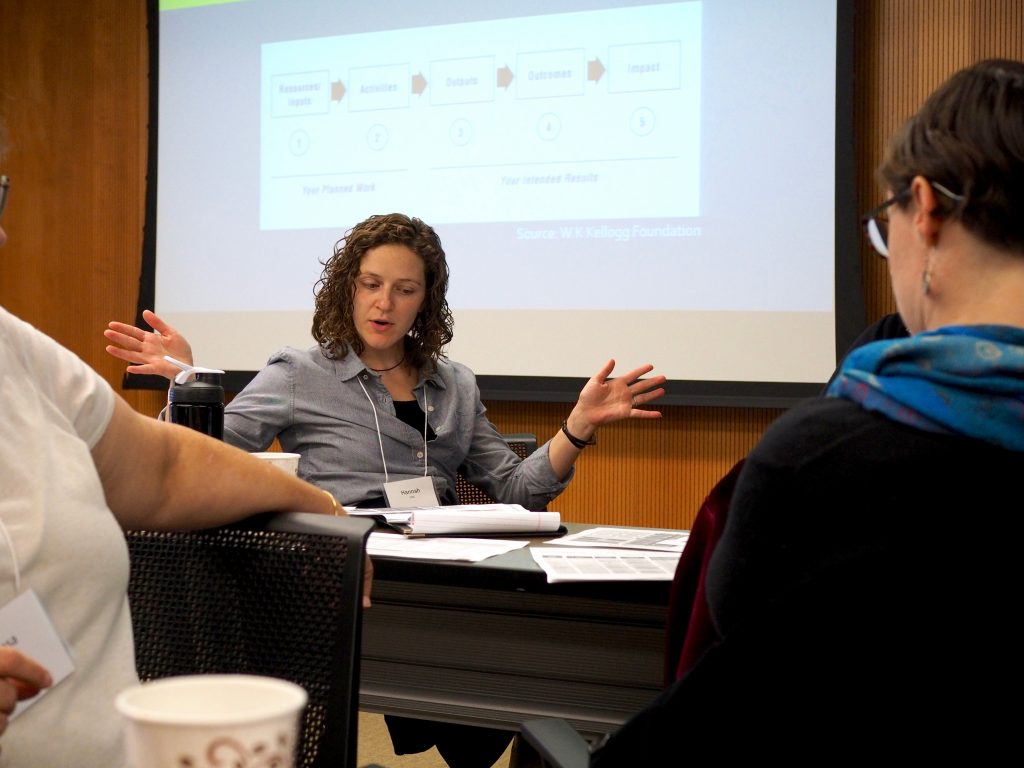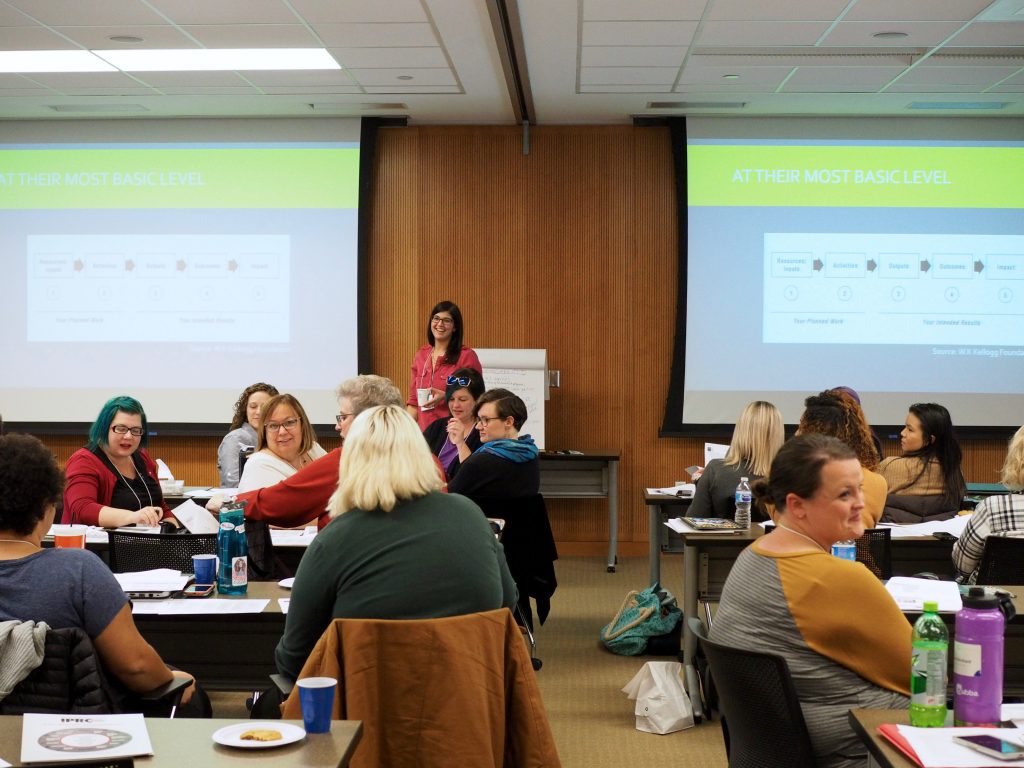Iowa leaders who work on the front lines of sexual violence prevention in the state gathered in early November at the College of Public Health to grow their evaluation skills.
In an opening ice-breaker exercise, the 30 attendees drew their thoughts about evaluation, filling sheets of paper with sketches of surveys, pie charts, and focus groups. They drew lightbulbs to symbolize new ideas, flowers to show growth, and a twilight zone to illustrate continuous time spent evaluating programs. They drew question marks to ask, what is working?
The University of Iowa Injury Prevention Research Center (UI IPRC) hosted the nearly two-day training for 12 local sexual assault programs and the Iowa Coalition Against Sexual Assault (IowaCASA) in partnership with the Iowa Department of Public Health Rape Prevention & Education (RPE) program.
UI IPRC Director Corinne Peek-Asa, who gave the event’s introduction, highlighted the important role violence prevention community leaders have in informing violence research.
“Our best research ideas come from the questions that you need answered – answers that will help you better do your important work,” she said. “The gaps we have in evaluation means that we can’t offer you the evidence–based prevention programs that you need right now. That is why evaluation is so important—we must build the evidence.”

UI IPRC’s Dr. Karisa Harland, who evaluates the state RPE program and co-led the training with Anne Abbott, said that there are very few evidenced-based programs specific to sexual violence prevention.
Without evidence-based programs, she said, we end up drawing on programs focused on reducing teen dating or intimate partner violence and hoping that they translate well. Unfortunately, Harland said, many evidenced-based programs focus on the individual level rather than on systems-level change.
“Violence prevention must move beyond teaching individual skills to changes in community and society to see reductions in violence,” she said.
Harland said we also need more evidence-based programs to reduce sexual violence in rural areas.
“Many of the programs are tested in urban settings that are not much like Iowa, so examining the impact of these programs in rural settings is crucial,” she said.
Tiffany Conroy, RPE Director at the Iowa Department of Public Health, said the prevention strategies of the local sexual assault programs and coalitions include strong approaches such as bystander interventions, mentorship programs, social-emotional skill-building in adolescents, and youth social justice and social media initiatives. She said evaluation will help these programs reach their full potential.
Conroy said the evaluation training will also to help participants see each other as collaborators in their work and increase the likelihood that they will seek the support of the state RPE evaluation team.
Kristen Field from Riverview Center in Dubuque said that after the training, evaluation seems like a vital tool that many of them were missing. “They really pushed the importance of understanding if and why the methods we are using are effective,” she said.

Although using external evaluators like the UI IPRC can provide expertise in evaluation methodologies, Harland said, they don’t have the history of how the programming works and the communities where they are.
“Giving local programs tools for evaluation will improve sexual violence programming and long-term outcomes in Iowa,” she said.
Iowa has received funding from the CDC’s RPE program since it was established in 1994 with the creation of the Violence Against Women Act. The majority of these funds are contracted to IowaCASA to fund six local sexual assault programs to conduct primary prevention programming.
The UI IPRC has been a long-time partner of the IDPH, serving as the evaluator of its Iowa RPE program for over a decade. The UI IPRC has given training sessions to local sexual assault programs on public health strategies around violence and primary prevention – how to prevent injuries from violence before they occur. The UI IPRC also worked with the IDPH in 2009 to estimate the cost of sexual violence in Iowa.
Published 12/04/2018


